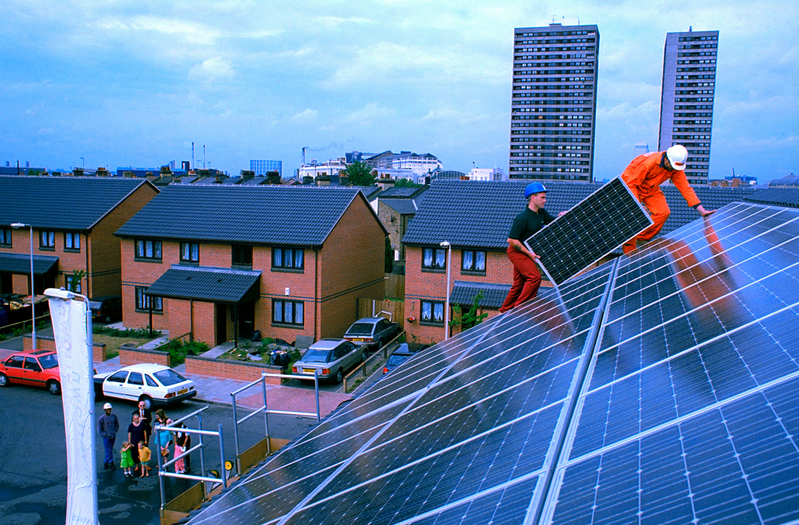Comment: Renewables cuts really not helpful for jobs, investment in solar

It’s been a really bad summer for UK renewables.
The Conservative government’s plan to cut the Feed-in-Tariff for small-scale solar panel installations by 87% is set to devastate investment in the sector – and it could cost the country over 22,000 jobs, according to businesses and unions.
Investment analysts EY have responded to the cuts by removing the UK from the list of top 10 attractive countries in which to invest in renewables for the first time in the report’s 12 year history.
The Feed-in-Tariff (FiT) is a popular way to encourage uptake in renewable energy technologies – like solar panels on your building’s roof – to produce electricity. It provides payments to ordinary energy users for the renewable electricity they generate, and a reduction on bills from using the energy produced yourself.
The justification for the cuts are savings for energy bill payers – but each British household will save just £6 on energy bills per year due to the cuts.
Jobs and skills training for young people at risk
London Living Wage internship: Young people in the capital are benefiting from job skills training installing solar panels on their own buildings
Young people installing solar in their own communities – including London – have spoken out against the threat to the clean energy industry.
This video produced by young interns at Repower London in association with Hackney Energy shows just how necessary the government scheme is to encourage skills training in solar installations.
“Bonfire of renewables”
UK energy department officials came under fire in Parliament and the London Assembly this week for the proposed cuts.
Conservative Mayor of London Boris Johnson went against his own party line with warnings that the decision was wrong if it stopped people investing in solar and cause tens of thousands of job losses. He was quizzed by Green Party assembly member Jenny Jones who called the government policy a “Bonfire of Renewables”.
Renewables industry ‘treated unfairly’
British Photovoltaic Association chair Reza Shaybani noted in early September the government’s relaxed attitude to job losses from the move, also noting this year’s IMF study showing how fossil fuel subsidies benefit from £400 per person each year, where renewables only got £112.
Shaybani also said that the renewables industry was being treated unfairly compared to the fledgling fracking industry. In August, Rudd backed the fast-tracking of the controversial gas extraction method of fracking, saying that “it’s good for jobs giving hardworking people and their families more financial security”.

